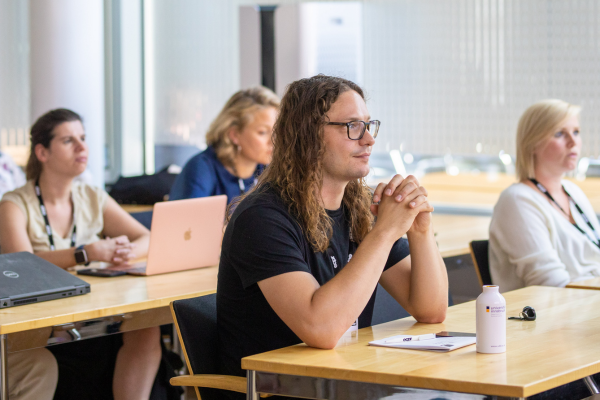
Thessaloniki, Greece
Sampling in Social Sciences
When:
26 August - 29 August 2025
Credits:
4 EC
Read more
Social Sciences
When:
30 August - 05 September 2024
School:
Institution:
In cooperation with University of Cologne
City:
Country:
Language:
English
Credits:
2 EC
Fee:
550 EUR

The Digital Revolution has produced unprecedented amounts of data that are relevant for researchers in the social sciences, from online surveys to social media user data, travel and access data, and digital or digitized text data. How can these masses of raw data be turned into understanding, insight, and knowledge? The goal of this course is to introduce you to Computational Social Science with Python, a powerful programming language that offers a wide variety of tools, used by journalists, data scientists and researchers alike. Unlike many introductions to programming, e.g., in computer science, the focus of this course is on how to explore, obtain, wrangle, visualize, model, and communicate data to address challenges in social science. The course emphasizes the theoretical and ethical aspects of CSS while covering topics such as web scraping (obtaining data from the internet), data cleaning and visualization, computational text analysis, machine learning, network analysis, and agent-based modeling. The course will be held as a blended learning workshop with video lectures focused on theoretical background and demonstrations accompanied by live online sessions where students can ask questions and work through projects together.
John McLevey, University of Waterloo, Canada.
You will find the course useful if:
- you have taken, e.g., a statistics course, know a little bit of Python, and now want to explore computational methods, data science or one of the approaches listed above.
By the end of the course you will:
- be able to define what constitutes the field of computational social science;
- have a high-level overview of the approaches utilized in computational social science, including advantages and shortcomings;
- have a basic knowledge and hands-on experience of how to apply the approaches and what tools are considered state-of-the-art;
- be equipped to deepen their knowledge on the theory and practice of computational social science.
Fee
550 EUR, Student/PhD student rate
Fee
825 EUR, Academic/non-profit rate The rate includes the tuition fee, course materials, the academic program, and coffee/tea breaks.
When:
30 August - 05 September 2024
School:
Institution:
In cooperation with University of Cologne
Language:
English
Credits:
2 EC

Thessaloniki, Greece
When:
26 August - 29 August 2025
Credits:
4 EC
Read more

Cologne, Germany
When:
04 August - 08 August 2025
Credits:
4 EC
Read more

Groningen, Netherlands
When:
22 July - 26 July 2025
Credits:
0 EC
Read more